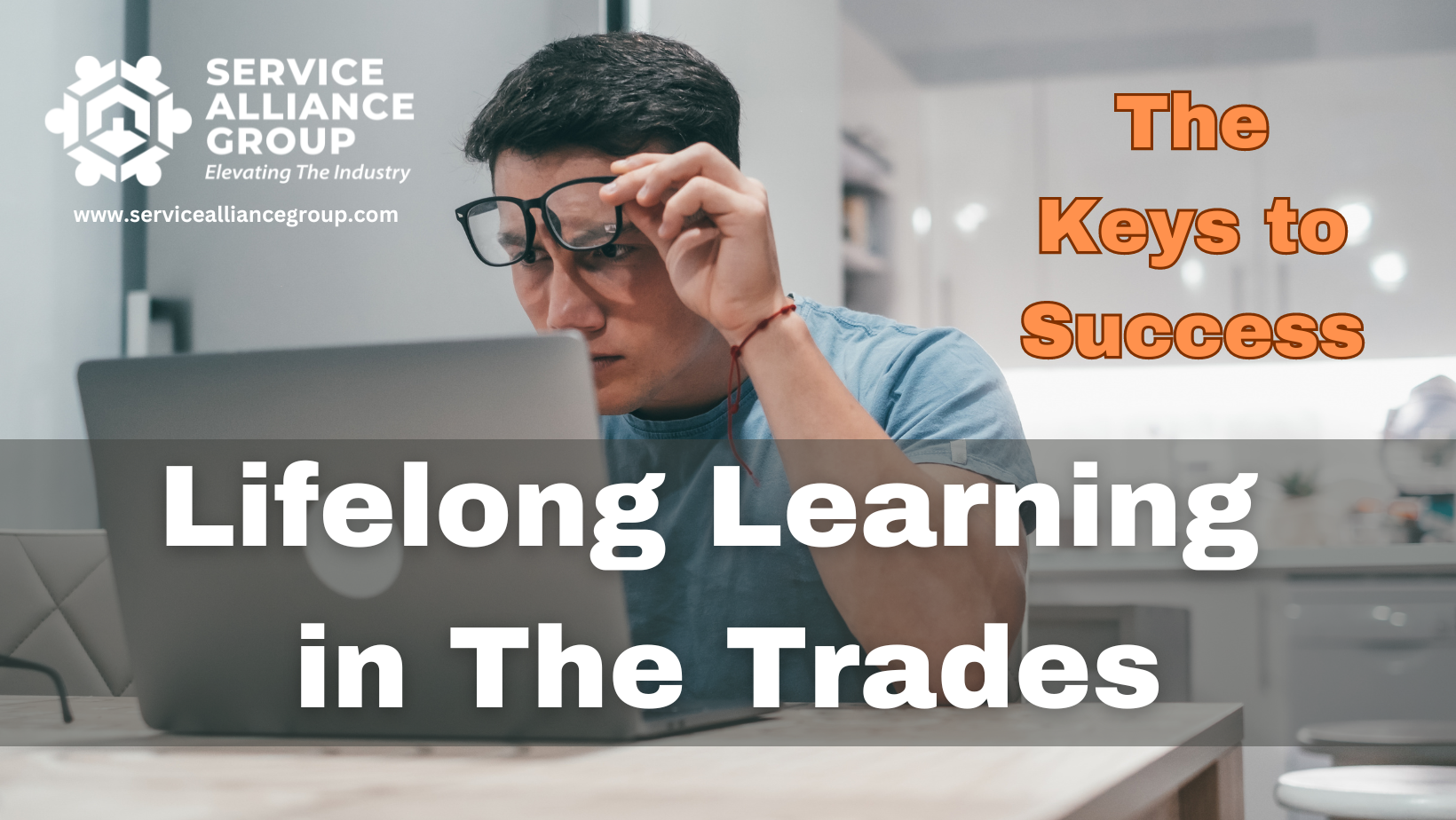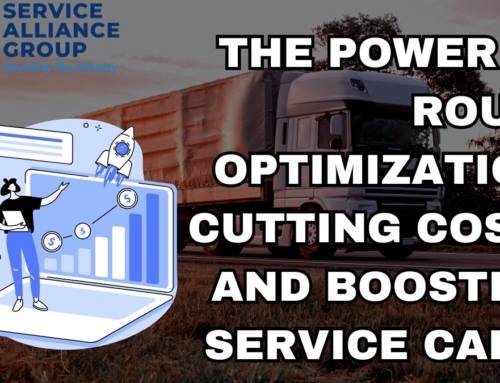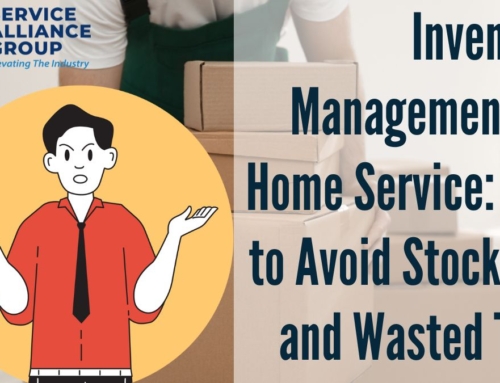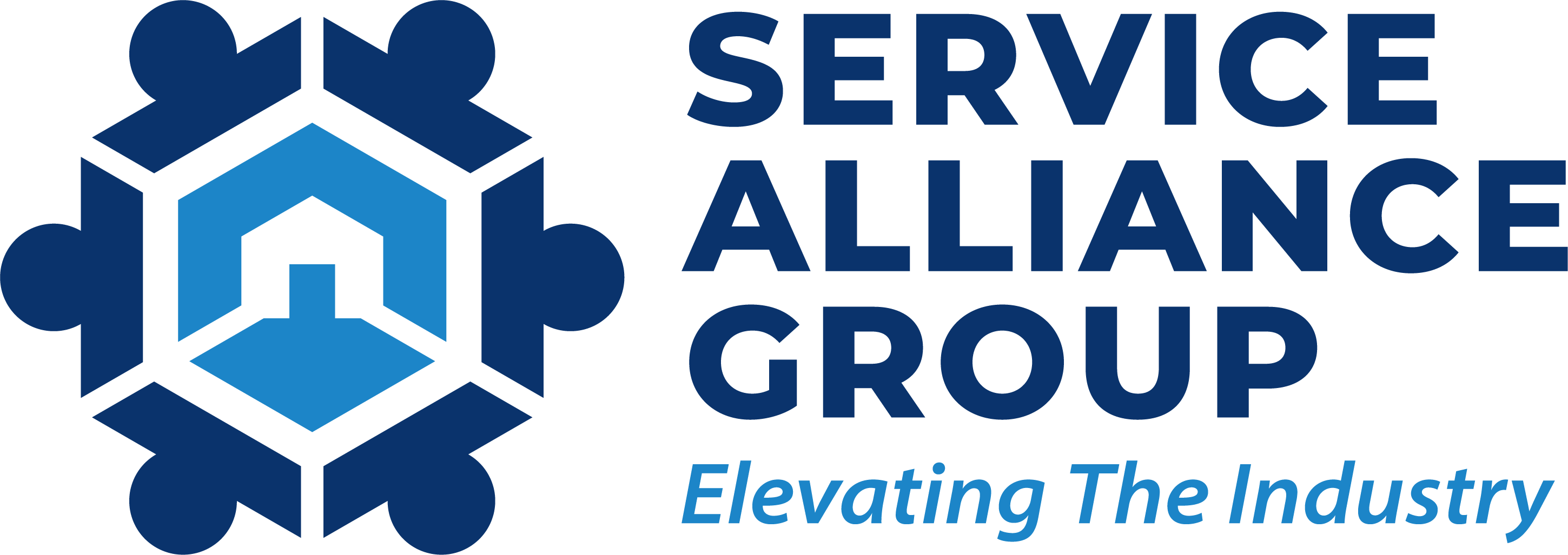In today’s rapidly evolving trades sector, the commitment to continuous learning stands as a cornerstone of professional success and sustainability. The advent of new technologies, changing environmental regulations, and shifting consumer expectations demand that trades professionals—not just in HVAC, plumbing, and electrical, but across all facets of the industry—remain at the forefront of knowledge and skill. This ongoing educational journey ensures that individuals are well-equipped to meet the challenges of today and tomorrow, fostering a career path marked by growth, innovation, and resilience.
The importance of lifelong learning in trades cannot be overstated. It transcends the mere acquisition of new skills or techniques; it embodies a mindset of growth, a culture of curiosity, and a relentless pursuit of excellence. For tradespeople, this means not only staying current with the latest industry standards and certifications but also embracing a broader understanding of related fields and emerging technologies that could impact their work. The integration of smart home technologies, renewable energy sources, and advanced materials into traditional trades practices exemplifies the kind of interdisciplinary knowledge that modern trades professionals must possess.
Moreover, the commitment to continuous learning reflects positively on a tradesperson’s reputation, enhancing their value to employers, clients, and the industry at large. It signifies a dedication to quality, safety, and customer satisfaction, attributes that are indispensable in the competitive landscape of the trades sector.
The Value of Continuous Education in the Trades
The value of continuous education in the trades extends far beyond the individual, impacting career growth, competitiveness, and the ability to adapt to new technologies and standards. For tradespeople, the pursuit of education is a strategic investment in their future, unlocking opportunities for advancement, higher earnings, and job security. As industries evolve, those who prioritize learning and certification find themselves well-positioned to seize emerging opportunities, often leading the way as innovators and thought leaders in their field.
Continuous education also plays a critical role in maintaining competitiveness. In a market where clients and employers increasingly seek the most qualified, knowledgeable, and up-to-date professionals, tradespeople who invest in their education distinguish themselves. They are more likely to be chosen for prestigious projects, command higher rates, and achieve greater job satisfaction. This competitive edge is particularly significant in fields like HVAC, plumbing, and electrical work, where the pace of technological change is swift, and the demand for skilled professionals is high.
Moreover, the ability to adapt to new technologies and standards is essential for staying relevant in the trades. Continuous education provides the tools and knowledge necessary to navigate these changes, ensuring that tradespeople can not only comply with new regulations but also leverage new technologies to improve efficiency, sustainability, and safety in their work. This adaptability is crucial for long-term career viability and success.
As we consider the transformative power of continuous learning, it’s essential to recognize platforms like SkillCat, which provide accessible, comprehensive HVAC online training for tradespeople. SkillCat offers a bridge to the future of the trades sector, empowering individuals with the skills and certifications such as EPA Certification needed to excel. For those ready to advance their careers and stay ahead of the curve, getting started with SkillCat is the next step. Embrace the journey of lifelong learning and set the foundation for a thriving, dynamic career in the trades.
By investing in continuous education, tradespeople not only enhance their careers but also contribute to the elevation of the entire trades sector. It’s an investment in personal growth, professional excellence, and the future of the industry.
Essential Skills for Today’s Trades Professionals
In the dynamic landscape of the trades sector, the repertoire of essential skills required for today’s professionals extends beyond technical prowess to encompass a range of soft skills that are critical for success. For those specializing in HVAC, plumbing, electrical, and appliance repair, a deep technical understanding of their specific trade is foundational. This includes not only the ability to diagnose and repair issues with precision but also an understanding of the latest technologies and methods that are reshaping the industry, such as energy-efficient systems, smart home technology, and sustainable practices.
However, technical skills alone do not define the modern trades professional. Soft skills, including customer service, communication, and business management, have become equally important. The ability to effectively communicate with clients, understand their needs, and deliver exceptional service is what often differentiates the good from the great in the trades. Moreover, skills in business management allow tradespeople to navigate the complexities of running a successful service, from managing finances and operations to marketing and customer relations.
The integration of these technical and soft skills ensures that trades professionals are well-equipped to meet the demands of a rapidly evolving industry. It enables them to deliver comprehensive solutions that go beyond simple repairs, offering value-added services and building lasting relationships with clients.
Enhancing Professional Development through Online Platforms and Alliances
The advancement of professional development in the trades has been significantly bolstered by the emergence of online education platforms and industry alliances. These resources have opened up new avenues for tradespeople to enhance their skills, gain certifications, and stay abreast of industry trends and best practices.
Online trades education platforms have transformed the landscape of learning for trades professionals. They offer accessible, flexible training options that fit around the demanding schedules of tradespeople, allowing for self-paced learning that can be tailored to individual needs and interests. From detailed courses on HVAC systems and electrical circuits to plumbing techniques and appliance repair, these platforms cover a wide range of technical skills. Additionally, they provide resources on soft skills development, ensuring a well-rounded educational experience that prepares tradespeople for the multifaceted nature of their work.
Equally important are the industry alliances that have been formed to support the trades sector. These organizations offer a collective wealth of knowledge, advocacy, and networking opportunities, furthering the professional development of their members along with member benefits. By joining an industry alliance, tradespeople gain access to exclusive training programs, certification courses, and events that can significantly enhance their career trajectory. Moreover, these alliances often serve as a powerful voice for the industry, advocating for standards, regulations, and policies that benefit trades professionals and their clients alike.
Together, online education platforms and industry alliances provide an ecosystem of support for tradespeople, ensuring they have access to the resources necessary for continual growth and success. These platforms not only facilitate the acquisition of new skills but also foster a culture of lifelong learning within the trades, encouraging professionals to continuously seek improvement and innovation in their craft.
Real-World Successes: Case Studies and Testimonials
The transformative impact of lifelong learning in the trades sector is best illustrated through real-world success stories. These narratives not only underscore the value of continuous education and certification but also inspire others to embark on their professional development journey.
One such story is that of Alex, an HVAC technician who leveraged online education platforms to advance his technical skills. Initially struggling with the complexities of modern HVAC systems, Alex enrolled in a series of advanced courses that covered the latest in energy efficiency and smart technology integration. This commitment to learning not only improved his proficiency but also significantly boosted his marketability. Within a year, Alex transitioned from a junior technician to a lead role within his company, attributing his rapid advancement to the skills and certifications he acquired through lifelong learning.
Similarly, Kathy, a plumber specializing in sustainable water systems, found value in joining an industry alliance that focused on green technologies. Through workshops and seminars offered by the alliance, she gained expertise in water conservation techniques and new materials that are less harmful to the environment. This niche knowledge set Kathy apart in her field, leading to increased demand for her services and the opportunity to consult on eco-friendly construction projects.
These testimonials, among countless others, echo a common theme: lifelong learning in the trades opens doors to new opportunities, enhances job satisfaction, and drives career growth. By embracing continuous education and certification, tradespeople not only stay ahead of industry trends but also position themselves as leaders and innovators in their field.
Frequently Asked Questions (FAQ)
Q1: How can I start my journey in learning within the trades?
Beginning your journey is as simple as identifying your learning goals and seeking out resources that align with those objectives. Online education platforms offer a variety of courses across all trades, providing a flexible starting point. Additionally, consider joining industry alliances or professional groups in your field to access specialized training and networking opportunities
Q2: Where can I find resources for continuous education in the trades?
Resources for continuous education are abundant. Online platforms provide courses and certifications tailored to the trades. Industry alliances often offer workshops, webinars, and conferences. Don’t overlook local trade schools and community colleges, which can be valuable sources of hands-on training and education.
Q3: What is the significance of certifications in the trades?
Certifications play a crucial role in the trades by validating your skills, knowledge, and commitment to professional development. They can differentiate you in a competitive job market, lead to higher wages, and demonstrate your expertise to clients and employers. Certifications in safety, specific technologies, or advanced techniques are particularly valuable.
Q4: How does continuous education impact career growth in the trades?
Continuous education ensures that you remain competitive and adaptable in a rapidly evolving industry. It opens up new career pathways, enhances job security, and can lead to opportunities for leadership and entrepreneurship. Lifelong learning is a key driver of professional satisfaction and success in the trades.
By actively engaging in learning and leveraging the wealth of resources available, trades professionals can achieve remarkable growth and success, shaping not only their careers but also the future of their industries.






